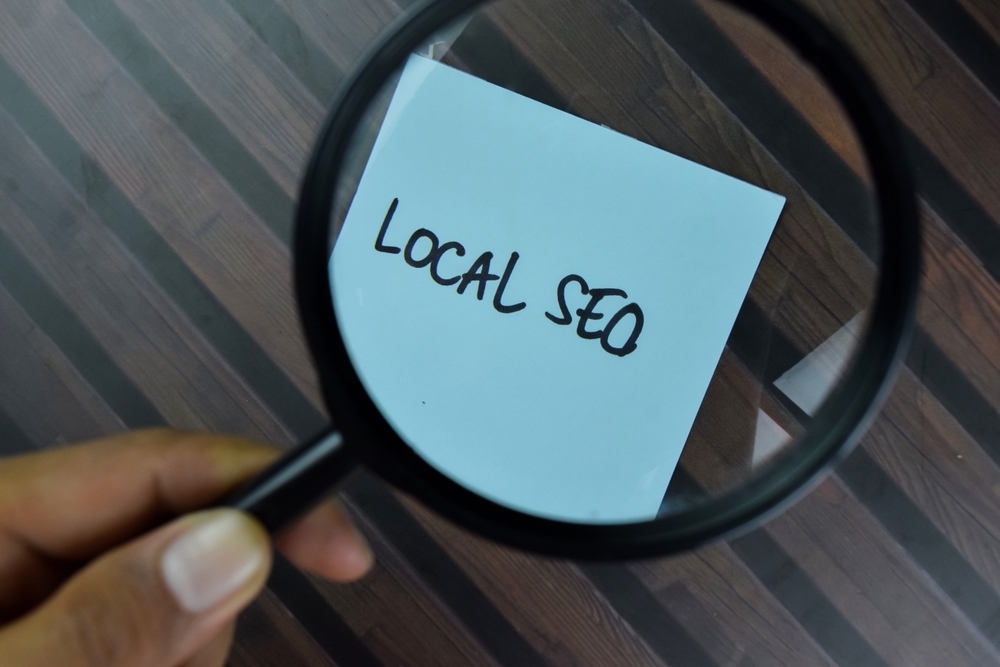Are You Using Location Page to Boost Local SEO Results?
Creating powerful, well-optimized location pages can transform your online visibility and drive more local customers to your business. With Google focusing on local search, effective location pages are crucial for attracting nearby clients and ranking well in search engine results. Are you looking for local SEO services? Contact our top-rated local SEO digital marketing company at (858) 333-8950 to schedule a free strategy consultation.
What Are Location Pages?
Location pages are dedicated web pages that target a specific geographic area. They help businesses highlight their services in one or more locations and are especially valuable for companies with multiple branches or those offering services across a large region. By including localized content, these pages increase your chances of appearing in local search results, such as “best pizza near me” or “dentist in San Diego.”
Why Are Location Pages Important for SEO?
Search engines often prioritize relevant, localized content to better serve users. By implementing location pages, you improve your site’s visibility for searches from users nearby or specifically looking for services in your area.
- Enhancing Local SEO: Location pages boost your local SEO efforts, making it more likely for your business to appear on search engine results pages (SERPs) when people look for services in your area.
- Improving User Experience: Localized content ensures that users find the exact information they’re searching for, increasing the chance they’ll engage with your site.
- Increasing Conversion Rates: People are more likely to choose businesses they believe are nearby or understand their location-based needs, ultimately resulting in more calls, appointments, and sales.
Essential Elements of a High-Quality Location Page
Location-Specific Keywords
Conduct in-depth keyword research to discover what people in your target area are searching for. Keywords could include service-related terms (e.g., “AC repair in Miami”) and locally-focused terms (e.g., “near me” phrases).
Unique Content for Each Location
Avoid duplicating content across multiple location pages. Google values unique, informative content, so make sure each page has its own distinct text tailored to the specific location.
Optimized Meta Titles and Descriptions
Create SEO-friendly titles and descriptions that include your target keywords and location names. Meta descriptions should entice users to click while accurately describing what they’ll find on the page.
NAP Information (Name, Address, Phone Number)
Display your business name, address, and phone number prominently. NAP consistency across your site and online listings enhances credibility and boosts local search rankings.
Location-Specific Images and Visuals
Include images relevant to the area, such as storefronts or landmarks, which can give users a sense of connection. Ensure these images are optimized for SEO by using descriptive alt text with location-specific keywords.
Google Maps Integration
Embedding Google Maps helps users quickly see where you’re located and adds an extra layer of geographic relevance to your page.
Local Customer Reviews and Testimonials
Feature local testimonials to build trust with potential clients and show Google that your business has an established presence in the area.
How to Make Location Pages NLP-Friendly
Natural Language Processing (NLP) is a key component of Google’s search algorithms, particularly with the advent of BERT and other AI models that help the search engine understand user intent. By focusing on NLP-friendly content, you improve your chances of ranking well while keeping readers engaged.
Answer Common User Questions
Use “People Also Ask” and other tools to identify common questions. For example, if you’re creating a location page for “Plumber in Denver,” answer questions like “How much does a plumber in Denver cost?” or “What are the best plumbers near me?” Addressing these questions makes your content more valuable and relevant to search engines and users alike.
Implement Conversational Keywords
Write in a conversational tone and use natural language that aligns with how people search. Use phrases like “If you’re looking for a trusted [service] in [location]…” instead of overly rigid SEO language.
Optimize for Voice Search
Voice search is increasingly popular for local queries. To capture voice search traffic, include long-tail keywords and question phrases that people might speak about on their devices.
Provide Context-Rich Information
Local search queries often have specific intents, so adding context (like highlighting special services or specific location information) helps capture both search engine interest and user attention.
Structuring Your Location Page for SEO and User Engagement
A well-organized structure enhances readability and engagement, both of which are important for SEO. Include the following:
- Header and Title Tags: Use a clear, keyword-rich H1 heading that includes the location name. For example, “Reliable Roofing Services in Los Angeles.”
- Introductory Paragraph: Begin with a brief summary that mentions the services offered and the location. This paragraph should immediately answer the user’s primary query, confirming they’re in the right place.
- Detailed Service Descriptions: Go beyond basic service listings by including specific details about each service. If your location page is for a dentist, describe services such as teeth cleaning, orthodontics, and emergency care with details about what patients in that location need most.
- Call-to-Action (CTA): Include multiple CTAs strategically placed throughout the page. For instance, add buttons like “Schedule a Consultation in [Location]” or “Call Our [City] Office Today.”
- FAQ Section: Adding a Frequently Asked Questions section, particularly with questions you know users are searching for, helps improve user satisfaction and provides more opportunities to use location-based keywords.
Optimizing Location Pages for Different Types of Businesses
Different industries will have unique needs for location pages. Here are examples of how you might approach location pages based on business type:
- Retail Stores: Include detailed product information, local events, and customer service options.
- Service-Based Businesses: Focus on local testimonials, service offerings, and emergency contact details.
- Restaurants and Cafés: Highlight menus, special promotions, and links to reservation platforms.
- Health and Wellness Services: Incorporate practitioner bios, client testimonials, and insurance options.
Establish Your Local Online Presence!
Crafting effective location pages requires a blend of SEO know-how and creative content creation. From developing unique content for each location to optimizing for search engine algorithms, every detail matters. If you’re ready to elevate your local SEO, let our team help you create location pages that not only rank well but also engage and convert visitors.
Contact our digital marketing agency today at (858) 333-8950.
